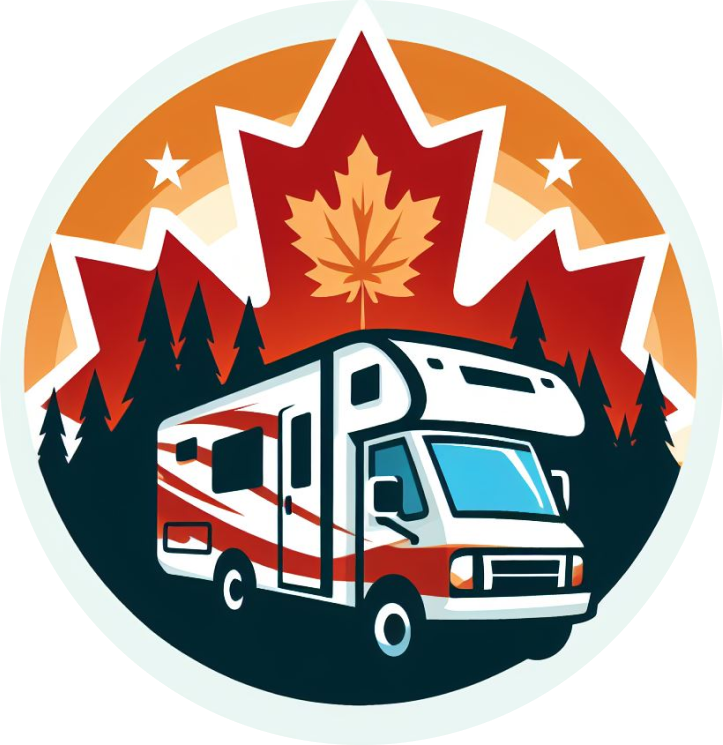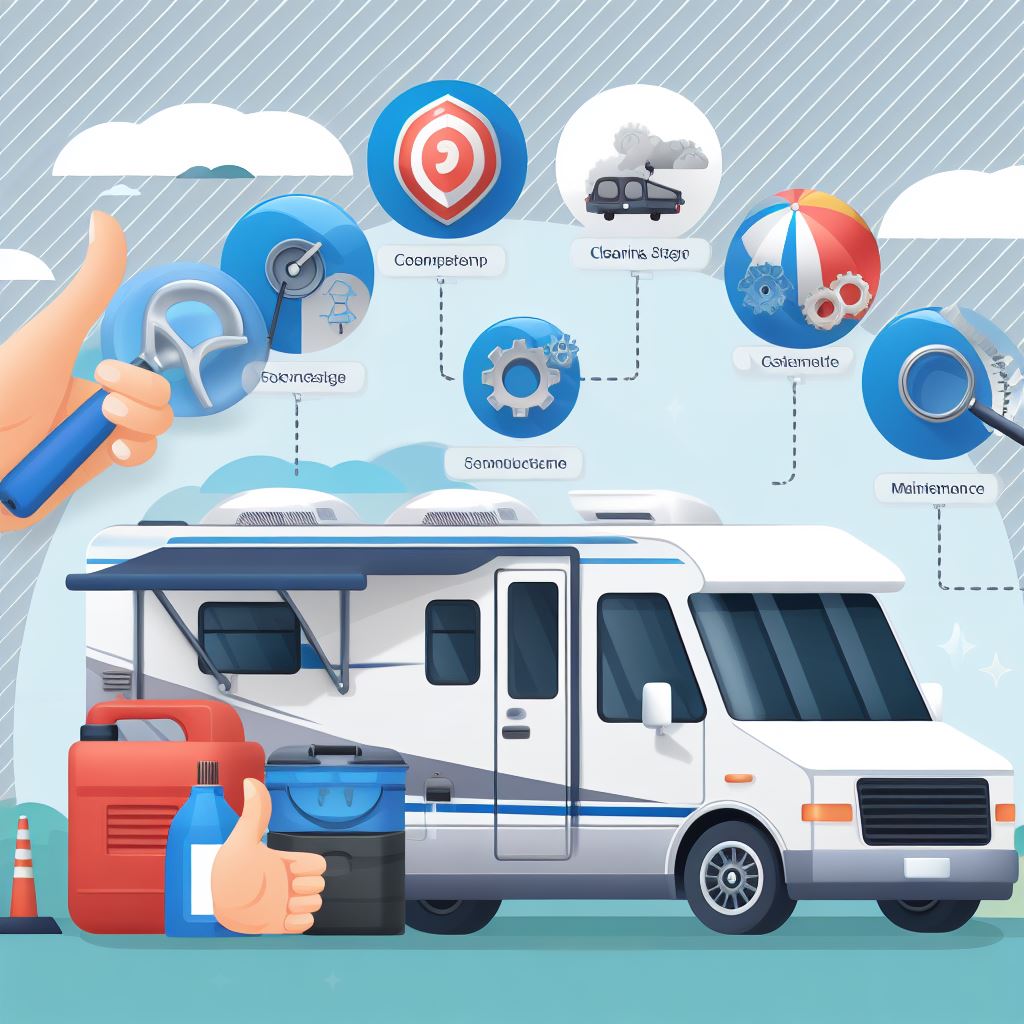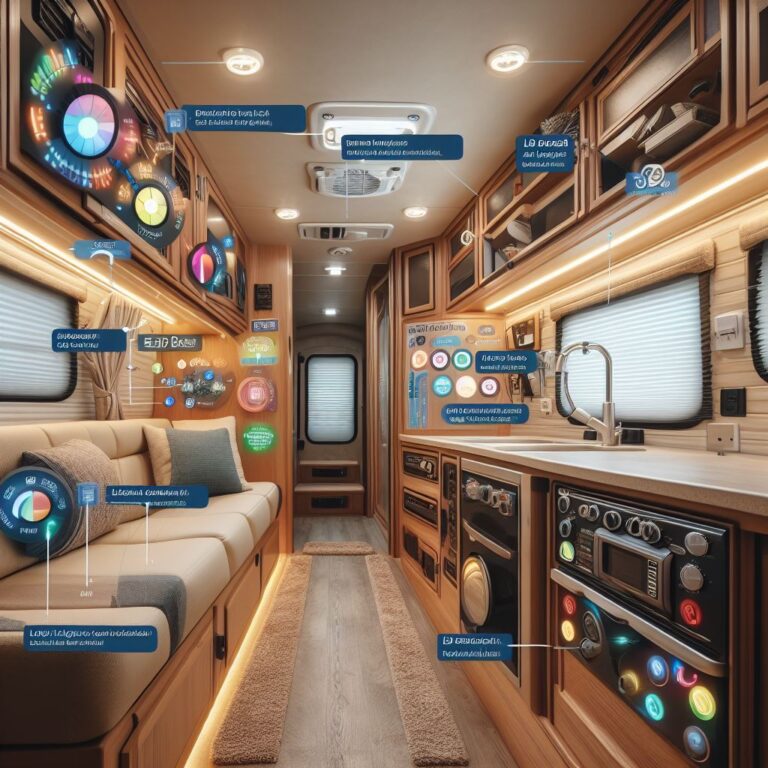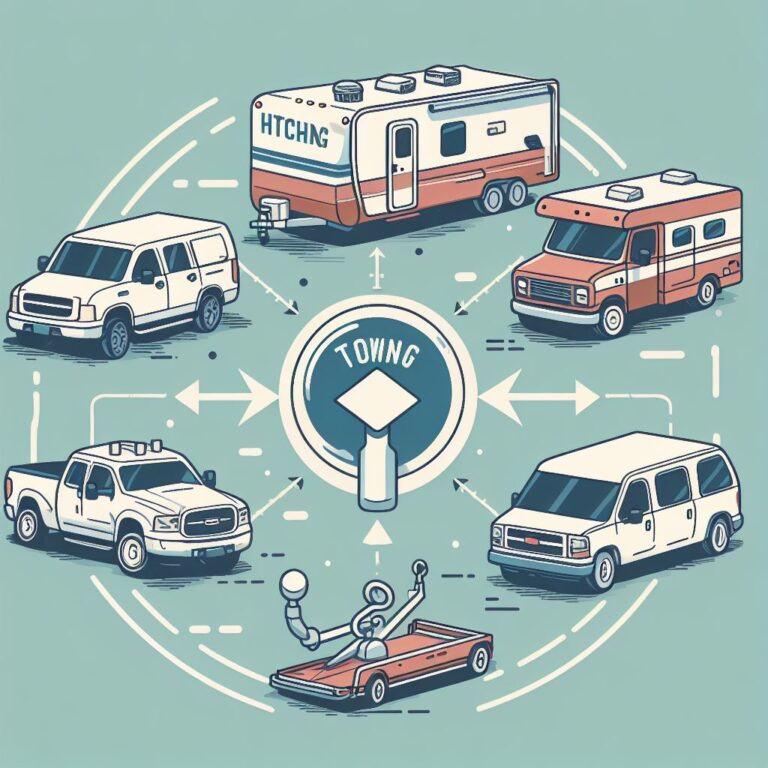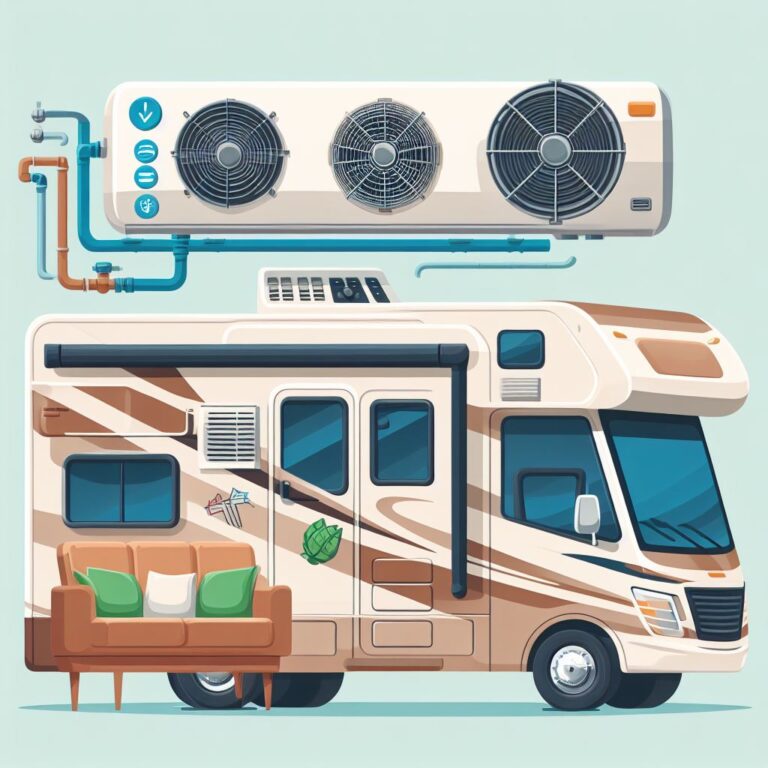How To Choose RV Cleaning, Storage & Maintenance
Understanding Your RV Maintenance Needs
Owning an RV is more than a vehicle; it is indeed a lifestyle choice. It proffers an exquisite blend of comfort, efficiency, and freedom. However, to continue to enjoy the benefits of your RV, understanding and upkeeping regular maintenance procedures becomes paramount. Regular service allows for early detection of potential faults and issues, enables repair before they escalate, and ensures optimal performance, thereby extending your RV’s lifespan.
The maintenance requirement of an RV is similar to that of a typical home or vehicle. It involves considering components ranging from basic mechanics to electrical systems, and more specialized systems that cater to your particular comforts such as heating, cooking, and sanitation. Regardless of whether you use your RV infrequently for occasional trips or as a permanent home, engaging actively in regular maintenance tasks will not only assure safety, but will also foster a reliable and enjoyable traveling experience.
Selecting the Right RV Cleaning Solutions
Rolling through picturesque landscapes or camping under starlit skies, your RV undoubtedly serves as a home away from home. With adventures comes the accumulation of dirt and grime, which can take a toll on your vehicle’s pristine condition. To maintain the same, it is essential to choose appropriate cleaning solutions that are specially formulated for recreational vehicles’ unique materials and finishes for an effective yet gentle cleanse.
The market boasts a plethora of RV cleaning solutions customized for different parts of your vehicle. For instance, you can find specialized cleaners and restorers for metal, rubber, and fiberglass surfaces of your RV. While these may restore shine and luster, caution must be taken to ensure that they are not corrosive or damaging to the material. In addition, checking if the product is eco-friendly and biodegradable becomes crucial when cleaning outdoors to minimize environmental impact. Beware of harsh ingredients and opts for pH balanced, non-toxic formulas. A little research today can ensure your RV remains in top-notch condition for many adventures ahead.
Techniques for Efficient RV Cleaning
Proper cleaning of an RV is not only essential for its aesthetic appeal but also crucial in prolonging its lifespan. An important factor when cleaning an RV is understanding the different surfaces and materials that make up the vehicle’s interior and exterior. The various components such as the vinyl upholstery, hardwood floors, metal fixtures, and fiberglass exteriors each require their specially formulated cleaners for effective and safe cleaning. Using the wrong cleaning agent can lead to damage, such as blotches on the fabric or corrosion on the metals.
Adopting a systematic approach can make the cleaning process more efficient. Starting from the top and working your way down helps ensure that you don’t contaminate areas you’ve already cleaned. Make sure to pay attention to often-neglected areas such as the roof, vents, and under the RV. Regularly emptying and cleaning the tanks is equally crucial. Waste tanks can give rise to unpleasant odours and even result in permanent damage if not properly managed. Always remember that regular cleaning not only keeps your RV looking pristine but can prevent costly repairs in the future.
Tips for Selecting an RV Storage Facility
Selecting the right RV storage facility is an integral part of owning a recreational vehicle. It’s essential to dedicate time and effort into researching the various options available in your vicinity. They all provide different benefits and depending upon your individual requirements, some may be a better fit than others. Facilities differ in terms of cost, security measures, and accessibility. Reviewing these factors carefully can help you land the right spot for your rig.
Size matters when we talk about RV storage. You’ll want to ensure the facility you choose can comfortably accommodate your vehicle’s size without any issues. Questions regarding the setbacks, turning radius, and height restrictions should not be overlooked. Apart from the physical aspects, consider the kind of customer service and overall responsiveness offered. An RV is a substantial investment, hence, engaging with a facility that values your custom and can help in times of need is invaluable.
Preparing Your RV for Long-Term Storage
Keeping your recreational vehicle (RV) in top shape all year round demands more than just regular maintenance; it also includes preparing it for storage during long periods of inactivity. As the winter season approaches, or as the need arises to park your RV for some extended time, it is of utmost importance that you take appropriate measures to ensure that it remains protected while in storage. Remember, a properly stored RV can maintain its value over the years, and more importantly, can save you from costly repairs upon return from hibernation.
Before storing your RV, start by taking care of its exterior. Thorough cleaning is essential to get rid of accumulated dirt, grime, and any corrosive substances. Consider waxing the surface to preserve its shine and protect the paintwork. Next, look into the interior amenities. Clean all appliances and cupboards, and make sure to remove any perishable and non-perishable items. Drain all the fluids from the plumbing system to prevent freeze damage. Lastly, consider structure and safety measures. Seal all the openings to prevent critters from finding their way into the RV, and keep the RV off the ground using jacks or blocks to prevent tire damage. Investing in a good quality RV cover can also provide additional protection against harsh weather conditions.
Regular RV Maintenance Tasks to Keep in Mind
Proper care is the key to the longevity of any recreational vehicle, and routine maintenance is instrumental in this process. Most RVs aren’t just vehicles, they are essentially homes on wheels. Keeping your home-away-from-home in top shape requires consistent diligence with certain tasks that you mustn’t overlook.
One fundamental task is inspecting and maintaining the tires. The tires hold the weight of your mobile home and endure varying road conditions thereby requiring regular pressure checks and rotations to ensure even wear. Equally important is the state of your RV’s batteries, which power both the chasse and the house, making them a critical maintenance component. Regularly checking water levels and keeping them fully charged is essential to prevent lasting damage. Moreover, lubricating moving parts in the doors, windows and sliding compartments is necessary to prevent corrosion or jams. These tasks, among others, form the cornerstone of routine RV maintenance.
Seasonal RV Maintenance: What You Need to Know
As the seasons change, so does the maintenance required for your RV. In the summertime, it’s imperative to inspect the air conditioning system thoroughly to ensure it’s running optimally. With increased use of the cooling system, filters can quickly gather dust and debris, affecting air quality and machine efficiency. In addition, the sun’s rays can cause the RV’s exterior to fade and crack, hence washing and applying a good quality wax can provide adequate protection.
Contrastingly, winter brings its own set of challenges. Frost and cold temperatures can wreak havoc on an unprepared RV. Protect your RV’s plumbing by pumping non-toxic RV antifreeze through the systems and prepare the engine for the low temperatures by switching to a cold-weather oil. Battery maintenance is also crucial in this season as cold temperatures can decrease their lifespan. Don’t forget to inspect the seals and seams as well for any potential leaks, as winter weather can deepen any existing issues.
DIY Vs. Professional RV Maintenance: Pros and Cons
Engaging in DIY RV maintenance has its advantages and drawbacks. One of the primary benefits of DIY upkeep is the opportunity to save money. By performing tasks such as oil changes, tire rotations, and simple plumbing repairs on your own, you can avoid the higher costs associated with hiring a professional. Mastering the skills required for routine maintenance can also allow for more self-reliance during trips, enabling you to handle issues that may arise on the road. On the downside, there is not only a steep learning curve for many of these tasks, but there’s also potential to cause major damage if a repair is done incorrectly.
Hiring a professional for RV maintenance, on the other hand, has the benefit of expertise and experience. Professionals likely have years of training and a wealth of knowledge about various makes and models of RVs, which means they can provide a level of service and precision that a novice may not be able to achieve. The assurance of high-quality work and potentially, a guarantee on the service, can often justify the expense incurred. The major con to professional services, of course, is cost. Frequent professional maintenance can quickly add up, potentially making it a less viable option for RV owners on a budget. Additionally, should a problem arise while on a trip, access to professional services might be limited based on one’s location.
Essential RV Maintenance Tools and Accessories
To handle your RV maintenance effectively, certain tools and accessories are indispensable. Whether you’re a seasoned RV-traveler or just beginning to explore woodland trails or breezy seashores, these items can help keep your vehicle in prime condition. These include everything from standard tools like screwdrivers and hammers that are useful for small fixes and adjustments, to more specialized items like a cordless drill or a torque wrench for handling different tasks involved in the upkeep of your vehicle.
In addition to these, it’s critical to have a robust tire pressure monitoring system to monitor the RV’s tire pressure and temperature in real time, thus minimizing the chances of flat tires and blow-outs. Basic cleaning supplies such as RV-friendly cleaning solutions, brushes, and sponges are also needed for regular upkeep. Additionally, RV-specific accessories like water-pressure regulators, sewer hose supports, and power cord adapters can make life on the road smoother. Regardless of the length of your journey, these are the essential tools and accessories necessary for the maintenance of your mobile abode.
Protecting Your Investment: The Importance of Regular RV Maintenance
Owning a recreational vehicle (RV) can be an exciting venture offering the promise of spontaneous road trips, countryside explorations, and family bonding. However, it also represents a significant financial investment which should be protected and maintained appropriately. Essential to this is regular RV maintenance, instrumental in extending the longevity and value of your vehicle. They ensure reliability on the road, maximize fuel efficiency, and can often help catch minor issues before they evolve into costly repairs.
Regular maintenance encompasses a broad range of tasks, from cleaning and waxing the exterior to prevent sun and weather damage, to routinely inspecting and servicing interior systems. This includes the engine, brakes, batteries, and water and sewer systems among others. Equally crucial is the upkeep of living spaces, such as ensuring that appliances function properly, and eradicating any signs of pests that may have found their way in. All these routine care protocols, when done regularly, contribute significantly to preserving your RV in top condition, safeguarding your cherished investment from untimely wear and tear.
Why is regular RV maintenance important?
Regular RV maintenance is essential to prolong the lifespan of your RV and safeguard your investment. It helps prevent major repairs and ensures your RV remains in optimum condition.
What are the specific maintenance needs for an RV?
Maintenance needs for an RV can vary depending on its make and model. However, common requirements often include regular cleaning, timely servicing, checking and replacing parts as necessary, and proper storage.
How do I choose the right cleaning solutions for my RV?
RV cleaning solutions should be non-abrasive and specifically designed for RV use. Always check the manufacturer’s recommendations and read product labels carefully to ensure they are safe for your RV’s exterior and interior surfaces.
What are some efficient techniques for cleaning my RV?
Efficient RV cleaning techniques might involve starting from top to bottom, using appropriate tools such as soft brushes and microfiber cloths, paying close attention to hard-to-reach areas, and drying all surfaces properly to prevent water marks and streaks.
How do I select a good RV storage facility?
When selecting an RV storage facility, consider factors like security, location, cost, accessibility, and the availability of covered or indoor storage options.
How should I prepare my RV for long-term storage?
Preparing your RV for long-term storage may involve thoroughly cleaning and drying it, removing perishables, disconnecting batteries, covering all openings to prevent pests, and conducting a complete maintenance check.
What are some regular RV maintenance tasks I should be aware of?
Regular RV maintenance tasks might include checking tire pressure and wear, inspecting roof seals and seams, testing the battery, checking fluid levels, and regularly servicing the engine.
What does seasonal RV maintenance entail?
Seasonal RV maintenance typically involves preparing your RV for changes in weather and driving conditions. This may include tasks like winterizing your RV, checking and maintaining the HVAC system, and ensuring all systems are working properly.
Should I opt for DIY or professional RV maintenance?
This depends on your level of expertise and comfort with RV maintenance tasks. While some tasks can be done yourself, others may require professional expertise. It’s always a good idea to consult a professional for major repairs or if you’re uncertain.
What are some essential tools and accessories for RV maintenance?
Essential tools and accessories for RV maintenance might include a tire pressure gauge, quality cleaning products, a water pressure regulator, a sewer kit, an RV cover, and a toolbox with basic tools.
- How To Choose TIPHOPE RV Accessories - February 10, 2024
- How To Choose Joinfworld RV Accessories - February 10, 2024
- How To Choose Conntek RV Accessories - February 9, 2024
